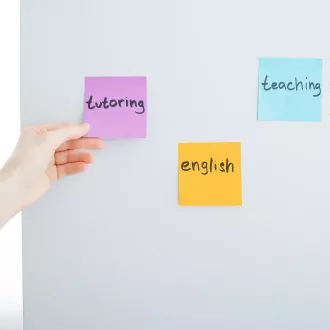Transcripción Condicional tipo 2 en forma interrogativa
Second Conditional - Interrogative Form
Como ya sabes, el condicional tipo 2 se utiliza para expresar que una situación hipotética tendría probablemente un resultado específico en el presente o en el futuro. Veamos cómo se construye en su forma interrogativa:
- Condición: Pasado Simple ---
- Resultado: Condicional Simple
- Forma: If + Sujeto + Verbo principal + Complementos? --- (Pronombre interrogativo) + Would + Sujeto + Verbo principal + Complementos?
Como ya sabes, en las oraciones interrogativas, el orden entre el verbo y el sujeto se invierte. Además, si hay un pronombre interrogativo («what, when, why, how, who…»), este va antes del verbo modal.
Ejemplo:
- ¿Si yo invitara a tu hermana a una cita, te enfadarías? / If I asked your sister on a date, would you get mad?
- ¿Te enfadarías si yo invitara a tu hermana a una cita? / Would you get mad if I asked your sister on a date?
El verbo modal «would» puede ser intercambiado por otros verbos modales como «may», «can» o «should», para cambiar el significado de la frase y añadir diferentes connotaciones.
Examples in Spanish and English
| Español | Inglés | Pronunciación |
|---|---|---|
| ¿Si yo me cayera, me haría daño? | If I fell, would I hurt myself? | ?f a? f?l, w?d a? h?:t ma?"s?lf"? |
| ¿Si tú te cayeras, te harías daño? | If you fell, would you hurt yourself? | ?f ju: f?l, w?d ju: h?:t j?:"s?lf"? |
| ¿Si ella se cayera, se haría daño? | If she fell, would she hurt herself? | ?f ?i: f?l, w?d ?i: h?:t h?:"s?lf"? |
| ¿Si él se cayera, se haría daño? | If he fell, would he hurt himself? | ?f hi: f?l |
condicional perfecto continuo tipo 2 interrogativa







